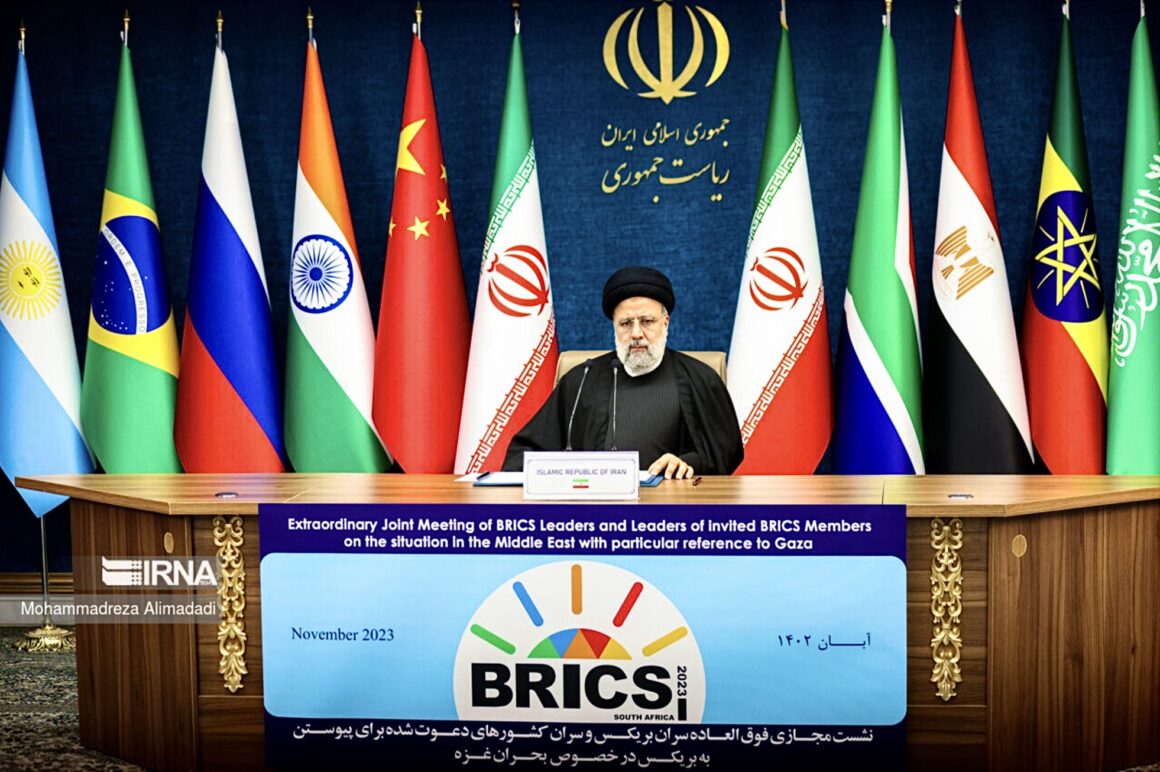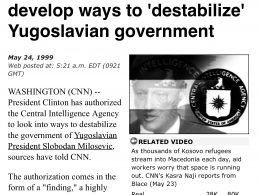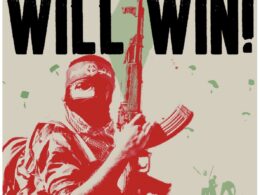Last month’s martyrdom of Nasrallah was a pivotal moment in the global anti-imperialist struggle, because it forced this struggle’s participants to adopt a less passive strategy. The assassination of the Hezbollah hero revealed that Iran’s previous posture, where it was indefinitely delaying any future retaliations against “Israel,” was not the right policy. Iran’s capitulationist faction, which had gained more influence due to the assassinations of many hardliners, made a “ceasefire” deal with Netanyahu. Then this faction falsely told Nasrallah that this made it safe to travel within Beirut. The subsequent loss of Nasrallah, which was so shocking and heartbreaking for the peoples across the region, prompted Iran’s people to mobilize demanding their government bring the murderers to justice.
Iran’s initial retaliation was only the first sign that Khamenei’s faction has strengthened its control; in the last few days, things have happened that show Iran’s long-term direction is in the favor of the hardliners. Beyond Iran’s preparing to strike “Israel” again, which proves that its counter-attack from two weeks ago wasn’t an isolated event, there’s come to be great political momentum within Iran towards developing nuclear weapons. And should this momentum go further, it will fully ruin the plans of the capitulationists; they want to re-enter the Iran nuclear deal, and thereby stop the country from gaining reliable deterrence powers. But because of the reaction to Nasrallah’s assassination, that is no longer where things are headed.
Iranian lawmaker Alaeddin Boroujerdi has revealed that authorities within the country are discussing leaving the Treaty on the Non-Proliferation of Nuclear Weapons if “Israel” strikes Iran, which would undermine any efforts to make a new anti-nuclear deal with Washington. And 39 other lawmakers have begun a campaign for Iran to develop nuclear weapons, further showing that Boroujerdi’s announcement is to be taken seriously. The argument that Iran’s pro-compromise president Pezeshkian has made, wherein supposedly the country’s best path is to return to Obama-era relations with Washington, simply cannot be effective in a post-Nasrallah world. Pezeshkian and his faction have exposed themselves as advocates of surrender, wanting to appease the enemy out of hope that it will leave Iran alone.
This was the logic Pezeshkian put forth during his UN speech last month: because Trump’s leaving the nuclear deal precipitated new sanctions, letting Washington regain control over Iran’s defense capabilities must be the path towards peace, and out of the suffering these sanctions create. The truth was that going on this path would have only given Washington greater opportunities to harm Iranians, like how Pezeshkian’s deal with Netanyahu only let “Israel” do more harm to Lebanon. These enemies cannot be trusted to uphold any “peace” deal, which is why Khamenei’s ideological camp has won; the masses see that they must do all they can to make sure the capitulationists get sidelined.
Because the “no to retaliation” faction has been discredited, and won’t get to define Iran’s policy for the foreseeable future, the wider anti-imperialist movement has gained important insight into which strategy is best. When Pezeshkian’s camp was still able to block Khamenei from retaliating, there was an argument (which I accepted for a time) that Iran’s refusal to act was in the interests of BRICS. Supposedly if Iran responded, even in a measured way that was totally proportional, then this would ruin its chances for being a player within the emerging Eurasian economy. In reality, it was the lack of action that presented a danger towards BRICS, because this passivity threatened to divide the anti-U.S. bloc.
As long as the capitulationists were in control, BRICS was at risk of becoming fractured, because Iran would engage with it while under the influence of a U.S.-friendly element. BRICS can afford to have India and Brazil be in many ways aligned with Washington, but for Iran to adopt these countries’ subservience towards the hegemon would be disastrous. It would weaken the Axis of Resistance, as well as the entire anti-imperialist camp. By making Nasrallah into a martyr, and provoking the wrath of Iran’s people, the imperialists have unintentionally prevented this outcome.
The lesson is that there’s a difference between doing something that’s too costly, and doing something that’s simply an unavoidable sacrifice. Iran’s options were not limited to either doing nothing, or taking a reckless action that would backfire; the thing it instead did was take a restrained action. Which is also going to have costs, but these costs will be entirely necessary; an essential part of the process in which the globe’s liberation forces defeat Zionism and imperialism.
By avoiding as many casualties as possible, and merely demonstrating that the Iron Dome isn’t effective, Iran ensured that whatever escalations happen next will purely be the fault of “Israel.” Iran hasn’t lost any global support, and its calculated way of operating has put it in control of the situation. The Axis of Resistance will win this conflict, like how Russia has won against the U.S. puppet regime in Kiev. And Iran will be able to militarily resist the hegemon while advancing its economic projects with BRICS, as Russia has done.
Within this conflict between pro-imperialist and anti-imperialist forces, pacifism is an enemy of those who seek to defeat the imperial beast. And there are different forms of pacifism. There’s the pacifism that vilifies all who ever fight back against the empire, repeating atrocity propaganda like that which Zionists created about October 7. There’s also a more well-intended pacifism that can appear to be on the side of the anti-imperialist cause, but consistently underestimates how much action is needed from the liberation forces. It would not have been strategically correct for Iran to refuse to ever act; BRICS alone cannot defeat the hegemon, and it turned out that taking armed action helped BRICS. The economic fight against the empire is not the only front within this war, there are fronts where military force is required. It was needed from Russia in Ukraine, and it’s needed from Iran in west Asia.
While China works to economically defeat the empire, Russia and Iran work to militarily defeat it, and each of these things is essential to our cause’s victory. By inflaming tensions in Korea and Taiwan, the hegemon is trying to start two more proxy wars in east Asia, with the goal being to get China into a military conflict as well. Even if this does happen, China will triumph like its partners. By committing these crimes against Lebanon, the Zionist entity and its Washington backers are utilizing shock and awe tactics, where an aggressor seeks to terrorize its victims into hopelessness. As the repercussions from these crimes continue, though, it becomes apparent that Zionism has only accelerated its own demise. And the U.S. empire is now going to be hurt even worse by the fall of “Israel,” because the hegemon’s challengers have been strengthened.
————————————————————————
If you appreciate my work, I hope you become a one-time or regular donor to my Patreon account. Like most of us, I’m feeling the economic pressures amid late-stage capitalism, and I need money to keep fighting for a new system that works for all of us. Go to my Patreon here.
To keep this platform effective amid the censorship against dissenting voices, join my Telegram channel.








